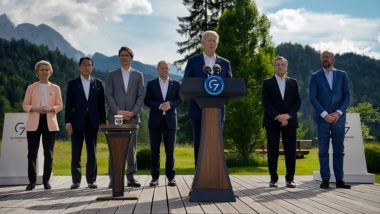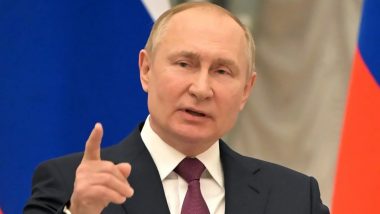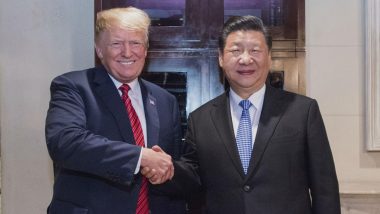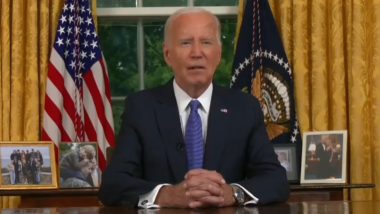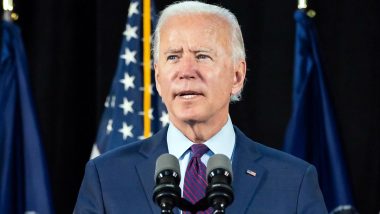Berlin, June 27: G7 leaders have launched a detailed plan to to mobilise hundreds of billions of dollars and deliver quality, sustainable infrastructure in a move deemed to counter Chinese President Xi Jinping's ambitious Belt and Road Initiative (BRI).
According to the BBC, the Partnership for Global Infrastructure and Investment (PGII) relaunches a scheme unveiled at last year's G7 talks in Cornwall, England.
Addressing the summit in Krun on Sunday, US President Joe Biden said that last year in Cornwall, the G7 made a commitment to "step up and provide financing for quality, high-standard, sustainable infrastructure in developing and middle-income countries". G7 Summit 2022: PM Narendra Modi to Visit Germany, UAE From June 26 to 28.
"We're offering better options for countries and for people around the world to invest in critical infrastructure that improves the lives, their lives, all of our lives, and delivers real gains for all of our people, not just the G7, all of our people," the President was quoted as saying in a readout issued by the White House.
Biden said that the G7 leaders aim to mobilise nearly $600 billion by 2027.
Of the total, the US will raise $200 billion via grants, federal funds and private investment, while the European Union (EU) has pledged 300 billion euros ($316 billion).
"These strategic investments are areas of critical to sustainable development and to our shared global stability: health and health security, digital connectivity, gender equality and equity, climate and energy security."
He further clarified that "this isn't aid or charity; it's an investment that will deliver returns for everyone".
"It'll boost all of our economies, and it's a chance for us to share our positive vision for the future and let communities around the world see themselves the concrete benefits of partnering with democracies," Biden added.
European Commission President Ursula von der Leyen said the aim of the latest project was to present a "positive powerful investment impulse to the world to show our partners in the developing world that they have a choice", the BBC reported.
The infrastructure plan was first unveiled at the 2021 G7 summit, which was called the Build Back Better World at the time.
The US-driven plan however, faltered from a lack of progress, and the project was renamed to PGII before being resuscitated at the ongoing summit.
Jinping's BRI, launched in 2013, provides financing for emerging countries to build infrastructure like ports, roads and bridges.
While it has developed trade links, it has also been criticised as a means of providing "predatory loans", forcing debt-saddled countries to cede key assets if they fail to meet their debt repayments, said the BBC.
(The above story first appeared on LatestLY on Jun 27, 2022 12:24 PM IST. For more news and updates on politics, world, sports, entertainment and lifestyle, log on to our website latestly.com).













 Quickly
Quickly








